
Pitt Maintains Top 20 Ranking in Research Expenditures
In the latest rankings of the National Science Foundation’s Higher Education Research and Development (HERD) Survey, Pitt maintains a top 20 position among American institutions in overall research expenditures and in expenditures from federal funding.
Humanities, Arts & Social Sciences Research Leaders Network Visit Pitt
The Humanities, Arts, & Social Sciences Research Leaders Network (HASS-RLN), co-organized and co-led by Shelome Gooden (University of Pittsburgh) and Christine Mallinson (UMBC) met September 18-20, 2024. This is part of the broad efforts of HASS-RLN to promote, support, strategize, and advance opportunities for humanities and humanities-adjacent research.

Shelome Gooden Joins the Doctoral Futures Initiative
As a new member of the Doctoral Futures Intiative, Shelome Gooden will have the opportunity to channel her passion for advancing graduate education.

Preventing PTSD in Firefighters Through Academy Training
Emergency responders are at elevated risk for mental health challenges like PTSD. Eric Meyer, School of Health and Rehabilitation Sciences, is working to prevent some of those risks in firefighters.
WVU with Pitt, CMU named finalist for $160M NSF Engine Award to supercharge regional energy technology, infrastructure
The Resilient Energy Technology and Infrastructure Consortium, led by a team at West Virginia University in collaboration with the University of Pittsburgh, Carnegie Mellon University and over 60 regional partners, has been selected as a finalist for a prestigious $160 million National Science Foundation Regional Innovation Engines award.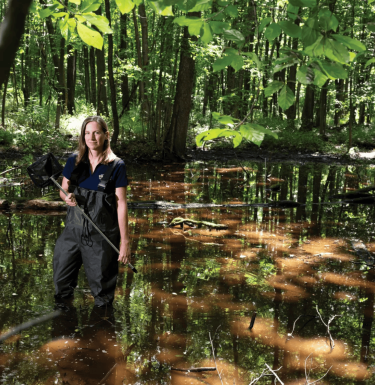
Research and Innovation Live with Nature at Pitt's Pymatuning Laboratory of Ecology
Pitt’s Pymatuning Laboratory of Ecology has space for large-scale research and ecosystems studies where students and researchers can get their hands on plants and animals in their natural environments.
Gut Microbes Key to Understanding How Exercise Boosts Cancer Immunity
A study led by Marlies Meisel, School of Medicine, shows for the first time how exercise reshapes the gut microbiome to improve cancer outcomes and enhance response to immunotherapy in mice. Meisel found that these benefits are driven by a specific compound called formate, which is produced by gut bacteria in exercised mice and was also associated with better outcomes in patients with melanoma.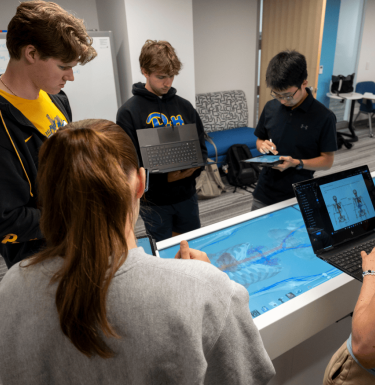
Fueling Economic Mobility in Pittsburgh’s Life Sciences Sector
The School of Education will lead a new Pitt effort to expand the region’s life sciences workforce by developing new community-oriented job training programs for local workers. The Life Sciences Career Pathways Initiative will bring together Pitt entities, local schools, nonprofit organizations and industry partners to conceptualize and create new career pathways in the life sciences through non-degree programs.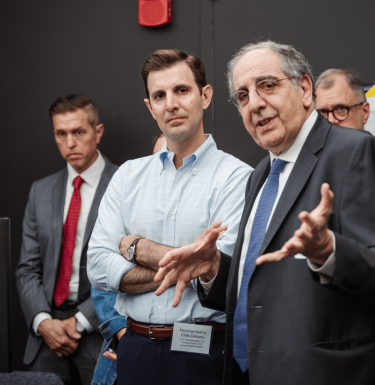
Rehabilitation Technology Research on Display for Congressional Visit
Pitt hosted U.S. Representative Chris Deluzio for a tour of the UPMC Vision Institute to see demonstrations of a wide range of ongoing physical rehabilitation research projects that have the potential of assisting United States veterans.
WVU, Pitt, and CMU Lead Regional Consortium Selected as NSF Semifinalist for Transformative Energy Initiative
A regional innovation consortium led by West Virginia University (WVU), the University of Pittsburgh (Pitt), Carnegie Mellon University (CMU), and United States Research Impact Alliance (USRIA), has been selected as a semifinalist for the prestigious National Science Foundation (NSF) Regional Innovation Engines $160M funding opportunity aimed at driving economic transformation through technological innovation.
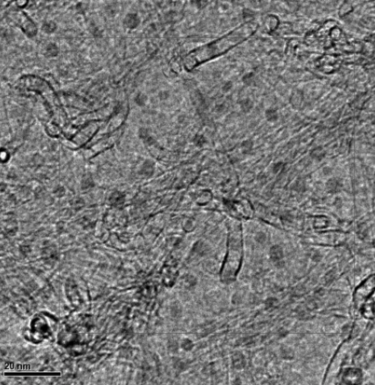
NSF Grant to Improve Nanomanufacturing
While nanoscale manufacturing is essential for many emerging devices, the process can be unpredictable and difficult to simulate and predict. Researchers Mostafa Bedewy, in the Swanson School of Engineering, and Ahmed Aziz Ezzat, at Rutgers University, are seeking to advance understanding of how machine learning can improve the manufacturing of high-density carbon nanotubes using nanoparticle seeds as a catalyst.
$6.4M NIH Grant for Complementary and Integrative Health Research
The University of Pittsburgh received a $6.4M grant from the National Institutes of Health (NIH) to establish a virtual research resource center that is designed to train, support and mentor complementary and integrative health researchers from other institutions across the United States.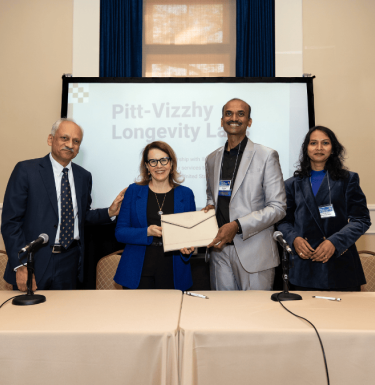
Utilizing AI to Transform Health Care
A new initiative from the University of Pittsburgh School of Medicine and Vizzhy Inc., a global leader in artificial intelligence, aims to transform and revolutionize health care by leveraging AI technology to scale disease management and reduce costs.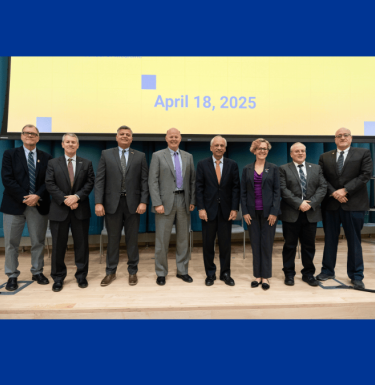
$10 Million Investment from Leidos to Accelerate AI Tools in Health Care
The University of Pittsburgh and the technology company Leidos announced a $10 million partnership to advance Pitt’s Computational Pathology and AI Center of Excellence (CPACE). This partnership merges academic excellence and technological innovation, acting as a catalyst to expand Pitt’s impact in applying AI to health care—both regionally and beyond.